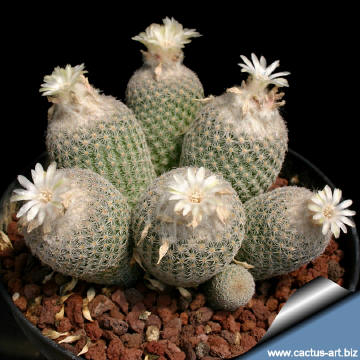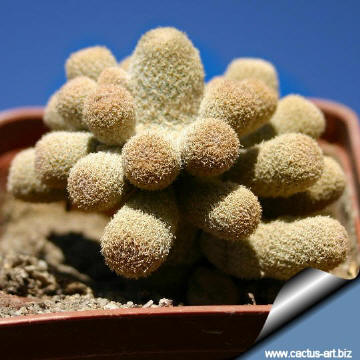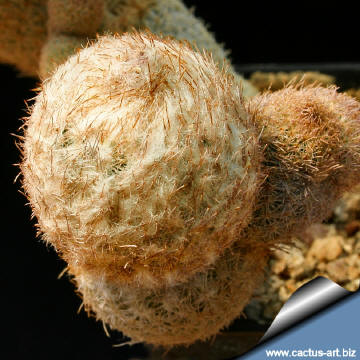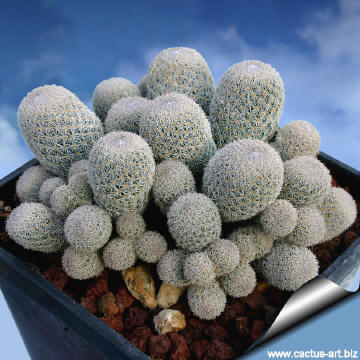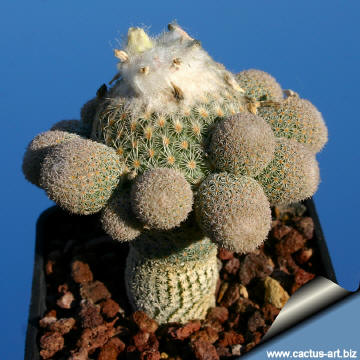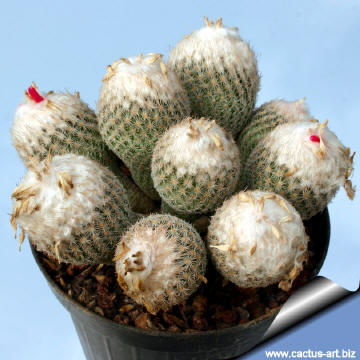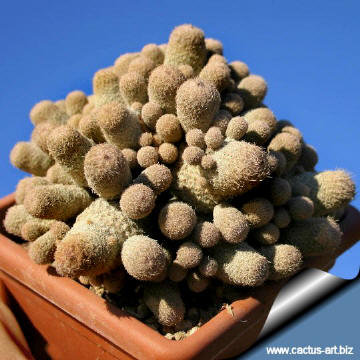-
x
Description
Clustering miniature cactus; an old plant may have more than 100 heads, and be 10 cm of diameter. The stems are elongated and very thin, 1-2cm in diameter. Family: Cactaceae (Cactus Family) Basionym: E. polycephala Backeberg 1954 Conservation status: Listed in CITES appendix 2.
Etymology: The subspecies name "polycephala" derives from the Greek adjective “polys (πολυς)” meaning “much, many, frequent; large; heavy” and the word “cephale (κεφαλη)” meaning “head; front; end, point; source, top; chief person”
| |
| Description: Clustering miniature cactus; an old plant may have more than 100 heads, and be 10 cm of diameter. | |
| Cultivation: Although regarded as a choice and difficult plant in cultivation it is relatively easy. It needs a soil mix that's particularly well-draining (rot prone). Water sparingly. | |

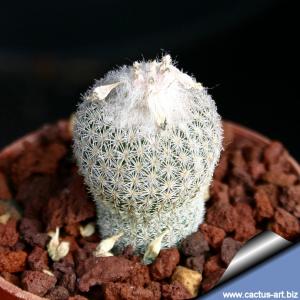
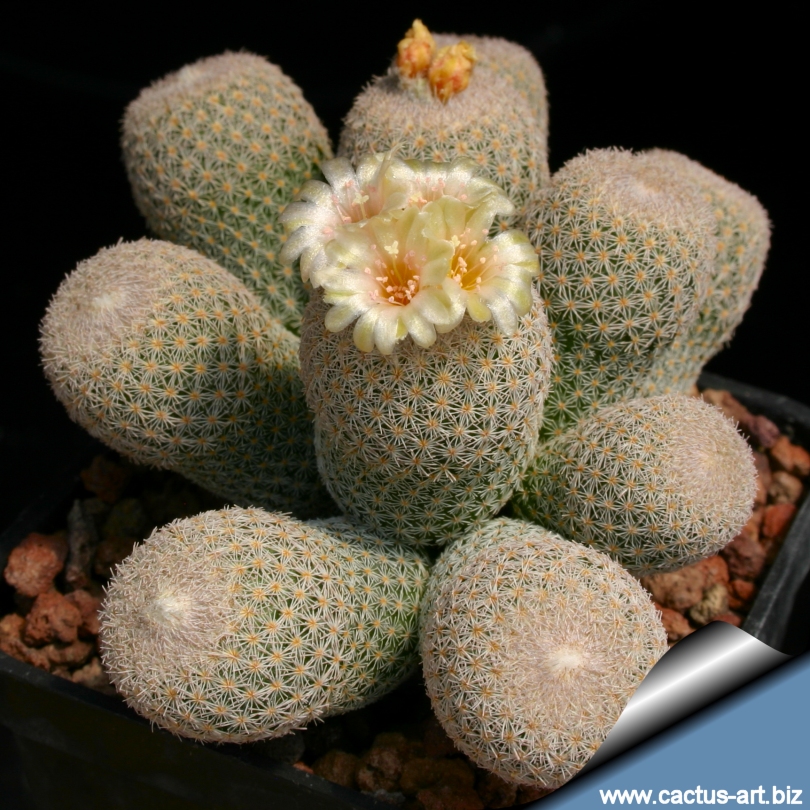 Epithelantha polycephala
Epithelantha polycephala